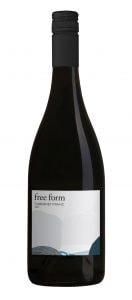WINE BLOG

Spit Happens #47 – Wine Trends in BC and Beyond Part 2
In Spit Happens 46 I wrote about the concept of Terroir and how the BC Wineries are starting to implement concepts of sense of place into their wine making and marketing. Farming their vineyards is another way of standing out from the crowd. How many different ways are there to farm? The answer is quite a few but there are a few ways in which your farming can result in better outcomes for your brand and the long term health of your winery. As with single vineyard wines the concept of farming differently than your neighbors and telling the customer was not widespread. Summerhill and Hainle winery were notable exceptions. As more wineries and vineyards started to develop in BC the need for a unique selling proposition became more apparent. If you can turn a specific farming ethic into a way to sell wine even better. Organic and Bio-dynamic farming are the most widely accepted techniques in grape growing .
Lets start with the first , organic. This refers only to the farming techniques not the wine making. To farm organically is exactly that. No synthetic pesticides, herbicides or fungicides. Even fence post composition in the vineyard can be specified as pressure treated fence posts may have trace elements of arsenic in them . There are also requirements about the length of time you must practice these techniques before certification will be issued . This amount of time and farming regime varies by country to country and by which organization is offering the certification. Also try to remember that Organic grape growing is different than Organic wine making which precludes the addition of sulphites. Examples of organic certified wineries are Kalala , Off the Grid , Rollingdale and Covert farms as well as the Free Form Wine made by the team at Crushpad/Haywire.Total number is between 35-40 with a few more in process.

Bio-dynamic farming refers to a more holistic approach to farming it encompasses natural fertilization techniques , no synthetic fertilization and adherence to a calendar that is a template for your farming . There are specific days in the month that are acceptable for specific tasks and you need to follow those proscribed practices to maintain your certification. Think of it as grape growing with horoscopes . ( Now I’m gonna be in trouble ) Currently the only winery certified Bio-dynamic certification is Summerhill.
Why do any of this as it might or might not lead to a better tasting wine ? The answer lies within ourselves. Wineries that follow these principle do so because they feel it’s the right thing to do. As a wine buyer we need to ask ourselves the same thing. Do we simply care about the taste ? Or do we care about how our food and drink is prepared and grown and how our decisions on what we eat and drink effects our environment.
Thanks for your time.
If you have any feedback we would love to hear from you on our Facebook page. https://www.facebook.com/winecellardepot/.
Also check out our Houzz Page for design ideas and planning. http://www.houzz.com/pro/winecellardepot/wine-cellar-depot
Remember Spit Happens, tell your friends, drink great wine and eat great food.
Cheers
David Lancelot
